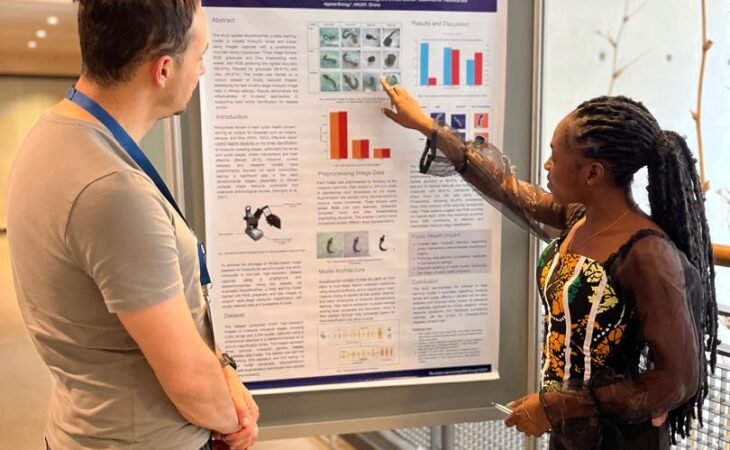- Posted On: June 23, 2025
- Posted By: officialjwise
Research Spotlight: Larva–Pupa Classification and AI4PEP Ghana’s Mission

As part of the ongoing work under AI4PEP Ghana, student researcher Lakyiere Alice Bagyiereyele recently presented her project at the Nordic Probabilistic AI 2025 conference. Her research explores the use of probabilistic models and image-based classification to distinguish between mosquito larvae and pupae, a stage of the mosquito lifecycle that is often overlooked in conventional vector surveillance systems.
This work aligns closely with AI4PEP Ghana’s objectives, particularly in its contribution to:
Developing AI-enabled tools that extend beyond adult mosquito detection to include earlier life stages critical for preemptive interventions.
Improving early warning systems by generating accurate data on mosquito population dynamics at the larval and pupal stages—crucial for anticipating breeding patterns and potential outbreaks.
Strengthening local scientific capacity by applying advanced AI methods such as probabilistic reasoning within a Ghanaian research context.
Promoting data-driven public health policies by providing health officials and decision-makers with timely, species-specific vector insights.
Alice’s research reinforces the broader vision of AI4PEP Ghana: to build context-relevant, AI-powered surveillance systems that can inform real-time responses to mosquito-borne diseases and support long-term vector control strategies.
This type of work not only enriches the project’s scientific depth but also contributes to positioning Ghana as a hub for innovative AI research in global health.